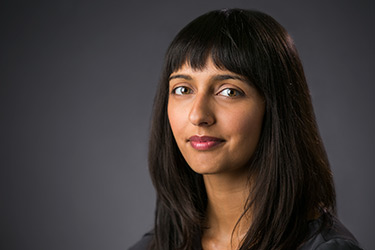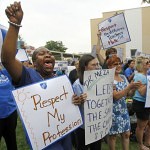Last week, the National Education Policy Center (NEPC), a virulently anti-education reform “research organization” at the University of Colorado, released issued a press release that called into question the significant academic improvement seen in New Orleans schools since Hurricane Katrina.
While it’s not necessarily newsworthy that NEPC (a beneficiary of AFT & NEA funding and favorite of Diane Ravitch) would attack New Orleans’ reforms, what was surprising is that one of the statement’s signatories was Huriya Jabbar, a research associate at Tulane’s Education Research Alliance (ERA).

Back in March, ERA released a study authored by Jabbar – “How Do School Leaders Respond To Competition?” – that drew widespread attention for its (misleading) central finding:
”One-third (10 of 30) of schools selected or excluded students by, for example, counseling students who were not thought to be a good fit to transfer to another school, holding invitation-only events to advertise the school, or not reporting open seats. This number included five OPSB schools and five RSD schools.”
Soon thereafter, I wrote a post criticizing the report for ignoring how the enrollment process in New Orleans had changed since she collected her data back in 2012:
“Given the concerns raised about possible ‘creaming’ of students by school leaders, one would expect that ERA’s report would take pains to show how dramatically the enrollment process has changed in the intervening three years. In fact, I know that at least one peer-reviewer of the study explicitly and repeatedly urged ERA to provide added context about the changes introduced by OneApp.”
Rather, Jabbar’s study downplayed the fact that OneApp, the RSD’s city-wide enrollment system, made the concerns she raised in her report irrelevant and left readers with the impression that school leaders continue to game the enrollment process.
At the time, I speculated that Jabbar’s failure to provide the full story was part of a strategy aimed at maximizing attention for her research, as well as for the Education Research Alliance. However, her involvement in NEPC’s broadside against New Orleans’ reforms last week (which included an interview on Georgia Public Radio) makes clear that I shouldn’t have been so generous in my assumptions. Huriya Jabbar is pushing a political agenda, and in the process, damaging her own credibility as a researcher.


4 Comments
Leave a Reply